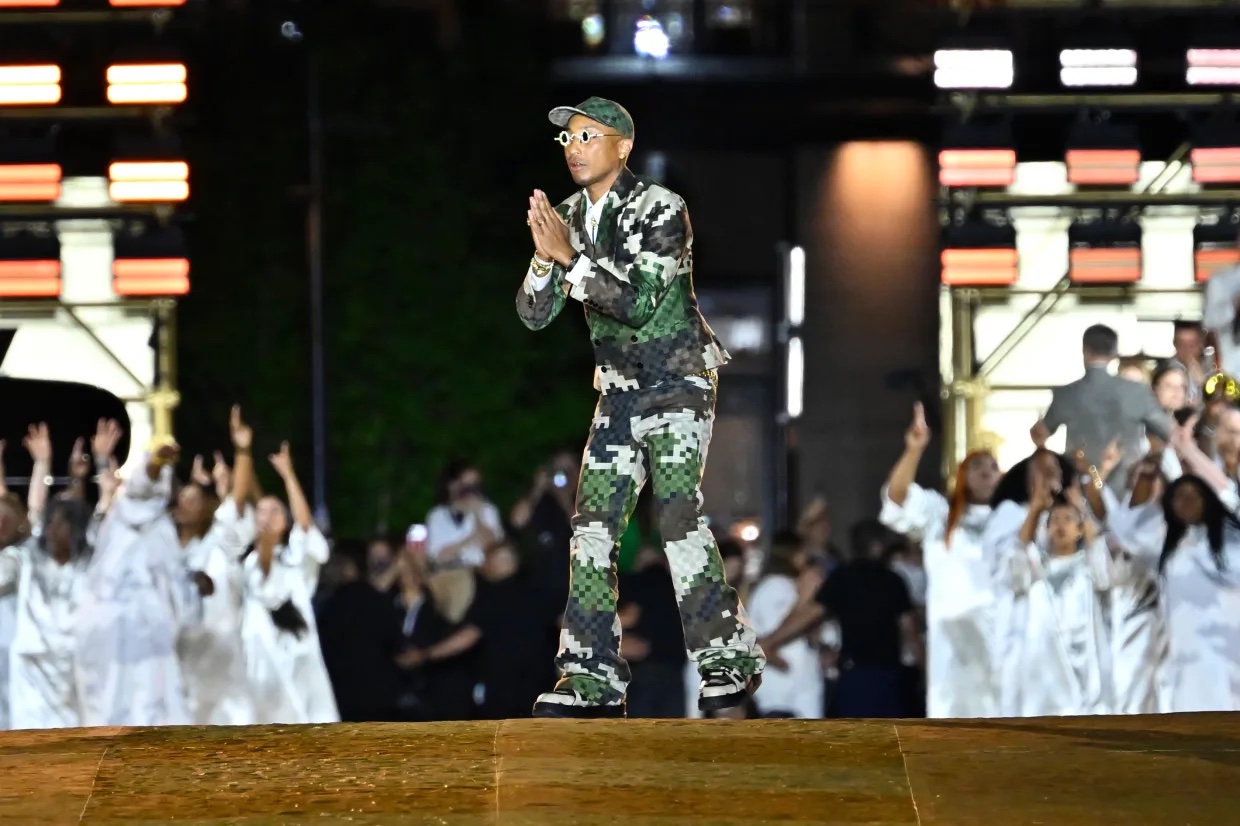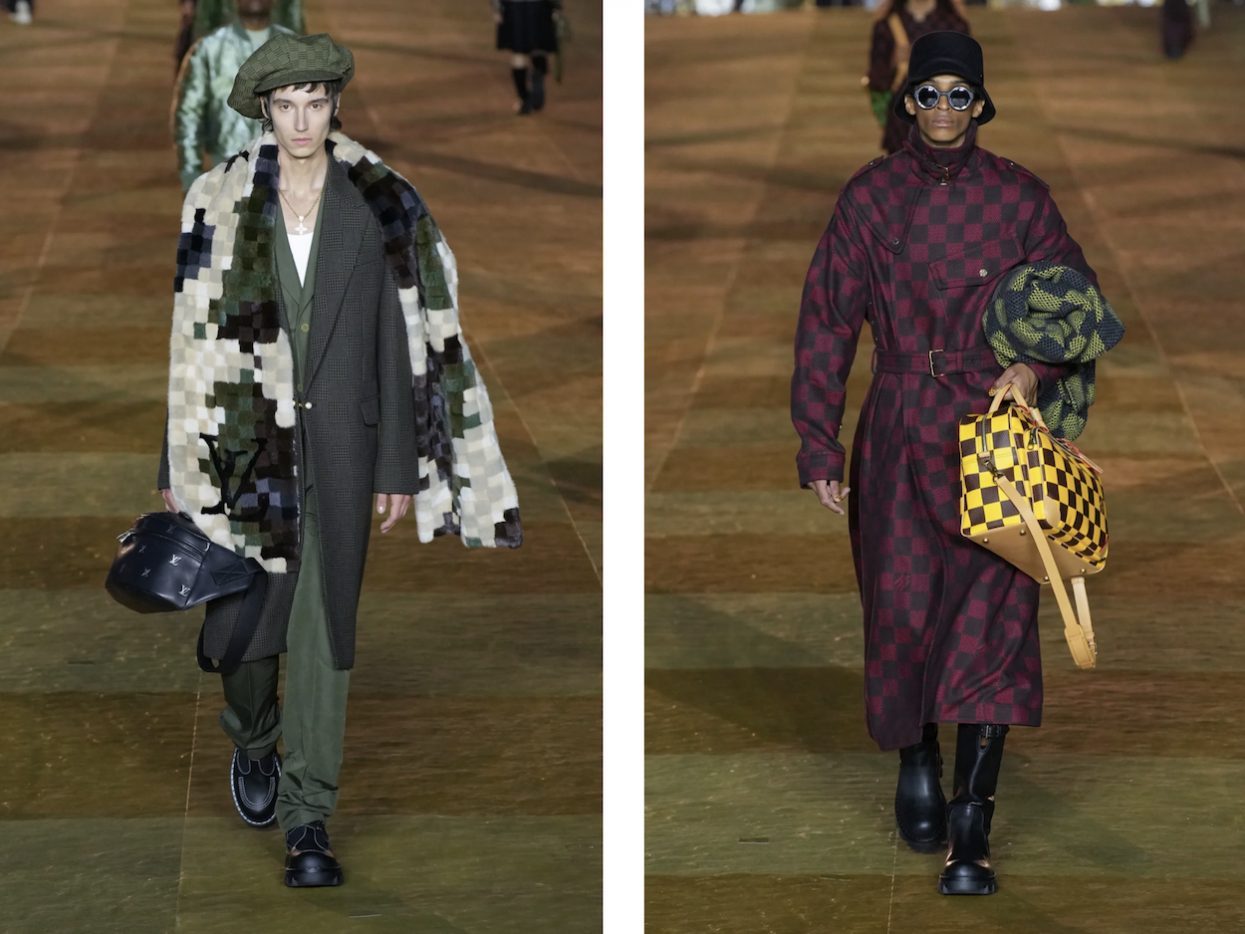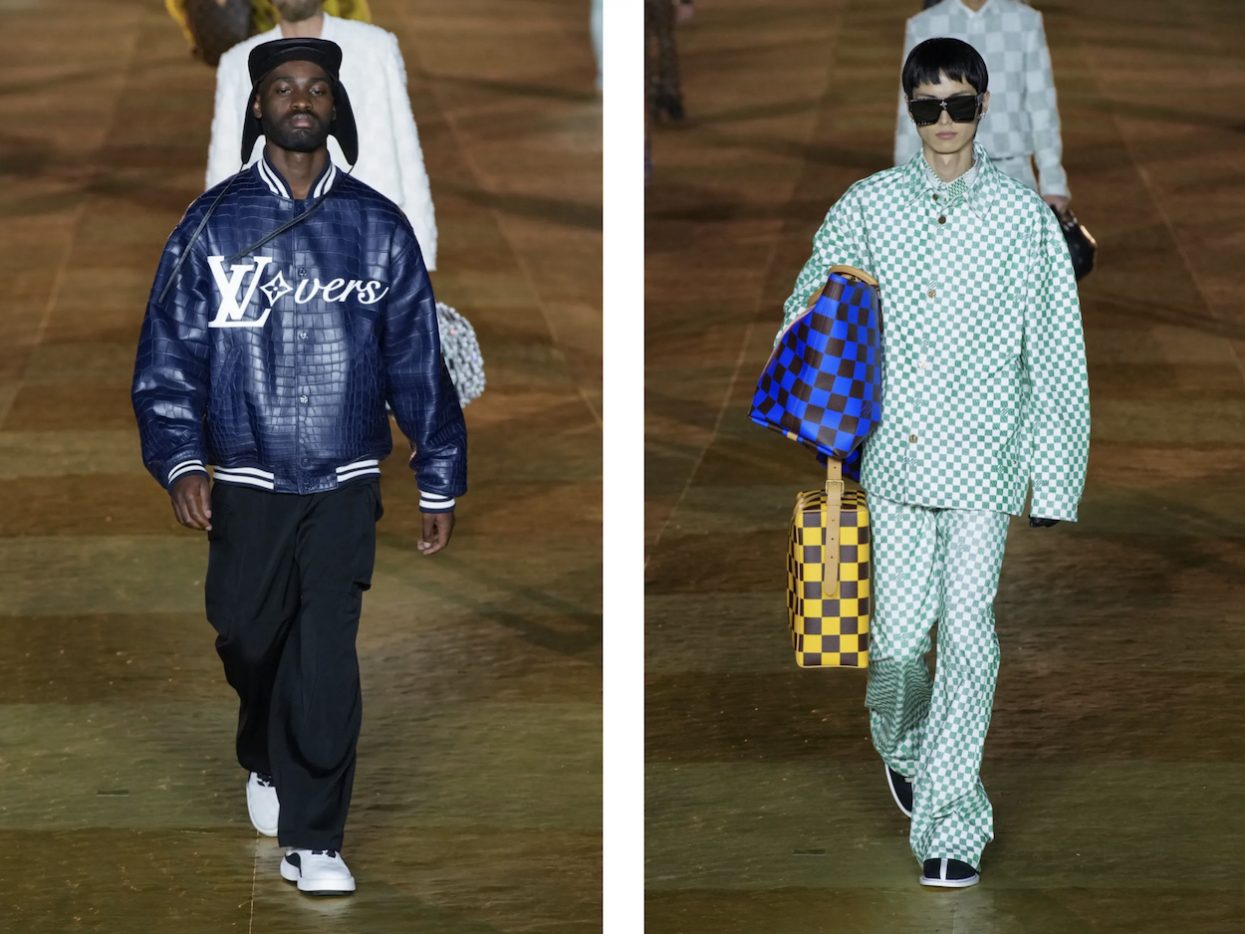Virgil Abloh often cited Pharrell Williams as a role model, a creative polymath who refused to be boxed in. Williams found his footing as a music-industry mega-producer, but his influence slowly seeped into luxury fashion, from splashy collabs with Chanel, Moncler, and Adidas Originals to launching Billionaire Boys Club and the skincare line Human Race. Abloh embarked on a similar trajectory, which culminated in him taking the top job at Louis Vuitton. So when the LVMH-owned maison announced Williams would succeed Abloh after his 2021 death, it proved the Arnaults were thinking big—a bet on the power of cultural capital and a firm intent to pick up where Abloh left off.
Some view Williams’ appointment as a reflection of Louis Vuitton’s penchant for celebrity and spectacle rather than directional design. Nevertheless, Williams is taking his role seriously. The self-described “perpetual student” quickly got to work at the Louis Vuitton men’s atelier in Paris, which overlooks Pont Neuf, where his first collection debuted earlier this week. It was a star-studded affair—Kim Kardashian, Rihanna, and Beyoncé all showed up, bearing witness to the new chapter unfolding on one of Paris’s busiest thoroughfares.
As for the clothes, Williams hewed closely to Louis Vuitton’s tried-and-true iconography while injecting his own personal style. There was a bit of everything—pearl-lined tracksuits, trunks clad in copper, and denim separates embroidered with micro-motifs of faces by artist Henry Taylor. The label’s damier motif was front-and-center but refreshed, yielding pixelated camo patterns on coats that skewed cryptopunk. He may have even debuted Louis Vuitton’s new it-bag, a leather riff on the classic Speedy reimagined in primary colors. Negative criticism is inevitable, but he seems unbothered: “I’m a student,” he says. “Students learn.”
The weight of the moment—he’s the first musician to be given such a weighty platform in luxury fashion, let alone the crown jewel of a $462 billion conglomerate, and its second consecutive Black creative director—wasn’t lost. “When you come from a culture that has been purposefully blocked and set in disadvantaged situations, you can’t imagine what’s even possible,” Williams tells British Vogue. “But there’s this narrative that’s changing. So many of us are being swept up from one place and landing in fertile soil in other places, and being treated and watered and sunned like all souls should be. There’s an impact, which is changing. It’s not enough, but it’s happening. I’m honored to be part of that.”



